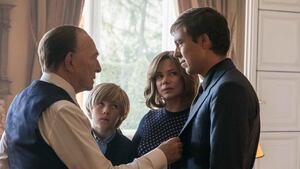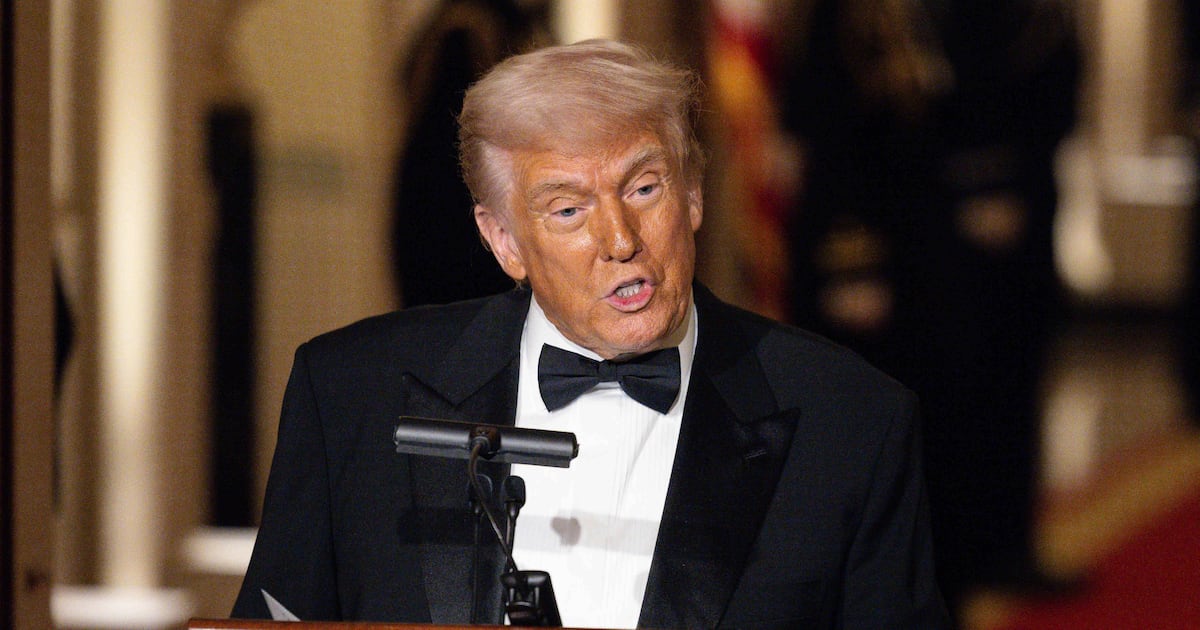The final season of House of Cards is obsessed with death. That’s as creatively winking as anything the series has done, I guess, considering that all of us, whether or not we watch the show, are about as obsessed with how House of Cards will handle the death of Kevin Spacey’s Frank Underwood.
The death, first revealed in a teaser showing Robin Wright’s Claire Underwood standing over his grave, is a narrative reaction necessitated by Spacey’s firing from the Netflix drama series in the wake of a series of sexual assault allegations against him. That makes House of Cards one of the first pieces of entertainment to grapple creatively with and then publicly navigate the firing of a performer implicated during the #MeToo movement.
The first few episodes of the season don’t reveal explicitly how Frank dies. (The spoilers that follow are very light, and don’t extend beyond the first handful of episodes. Still: Spoiler warning.)
The public knows one thing. Claire, in the characteristically duplicitous Underwood way, knows another. But, breaking the fourth wall and speaking directly into the camera as Frank always did, she claims things are going to be different. “Whatever Francis told you the last five years, don’t believe a word of it,” she says. “It’s going to be different for you and me. I’m going to tell you the truth.”
Of course, you’d be a fool to believe that, given the track record of this show and her character. But we do get some information. It’s not until the end of the season six premiere that the first details of how he dies emerge, revealing that Frank died next to Claire in bed. It should surprise no one that, in this show that has seen the calculating murders of more characters than other drama series’ entire cast lists, this is merely what Claire told people.
She confides in us—again, she swears it’s the truth—that she thinks he was killed. They did not sleep in the same bedroom that night. When she woke up, he was dead. And the mystery of what happened will haunt her, just as his actions in life are threatening her term as the first female president of the United States. “A man like Francis doesn’t just die,” she says. “That would be, what’s the word, convenient.”
Is any of this effective? Satisfying? Tantalizing? The kind of creative schadenfreude Spacey deserves? Is the show “handling” this well?
Those are the murky questions now asked about House of Cards, which returns to Netflix on Friday, November 2, now that the streaming service decided to keep the show going after firing Kevin Spacey. The show is no longer a drama series, but an integral part of the #MeToo conversation, and a case study for Hollywood’s response.
It’s a precarious position to be in. Of course the cast and crew involved with the television show shouldn’t be collateral damage for the deserved blacklisting of Spacey in the industry. But the series now finds itself in a similar, although by nature of the drama’s subject matter and the allegations against Spacey, graver position than the Roseanne spinoff The Conners. How do you figure out a show’s creative path forward when public opinion surrounding the departed star colors the narrative, marketing, and publicity as the series moves on?
When season six picks up, Claire Underwood is president, fresh off her first 100 days in office—a dramatic 100 days that saw her husband die and her own popularity suffer. “I thought everyone loved a widow,” she tells a member of her security detail after instructing him to read the specific details of all the online death threats against her—including the gruesome winner of a contest for the most creative way to kill her—and learning that she receives four times as many threats on any given day than previous presidents, and twice as much since Francis died.
Later in the episode, she survives an assassination attempt, and wonders if it is tied to her suspicion of Frank’s murder. Like we said, there’s a death obsession. And we’re the ones most obsessed with it.
It is certainly meaningful that the show is moving on after the potentially ruinous behavior of its male star with the lead female character in a power position, steely and steadfast in the face of the misogyny she’s facing as the country’s first female president and the hatred she’s facing as the widow of the corrupt Francis Underwood. But especially with the lead up to the new season capitalizing on a cultural disgust with Spacey by playing up his character’s death, there’s a latent ickiness, too.
The teaser, which shows Claire mocking his lack of legacy, echoes a similar scene with Frank and his father in the first season of the series. (Another detail about Frank’s death: He was not buried in Arlington as he wished, but instead next to his father in their hometown of Gaffney, South Carolina. It’s a slight Claire herself orchestrated.) The symbolism is clear. But at the same time, you can’t help but wonder whose disgraced legacy Claire is supposed to be rising from the ashes of, the character’s or Spacey’s.
Dancing on a metaphorical grave in the name of promoting a series sits wrong, even if that grave is Spacey’s. It’s a tension that season six, at least in this first batch of episodes, never manages to overcome.
In the premiere, there’s a scene in Francis’s old White House bedroom in which Claire captures a bird stuck in the wall and releases it, pledging, “Francis, I’m done with you,” only to learn over the course of the next few episodes how, even from the grave, he’s not done with her.
We’re introduced to Diane Lane and Greg Kinnear’s characters, siblings Annette and Bill Shepherd, who, in the vein of the Koch brothers, run a industrial conglomerate whose family foundations wield unseen political power. It’s canny of Netflix to cast two of Hollywood’s most likable actors in the wake of the departure of one its most currently reviled from the show. When the Shepherds calculate and connive in every bit the Underwood tradition, it’s far easier to delight in it than it would be with anyone approaching Spacey’s reputation.
The Shepherds had dealings with Frank, and expect them to be honored by Claire, who is focused on exacting her own agenda and distancing herself from her husband. But it’s not just Frank’s political promises that she must reckon with. Annette’s son, a political power player portrayed by Cody Fern, is manipulating the press to focus on allegations that Claire was about to divorce Frank and pardon his impeachment before his death. And on top of everything else, Doug Stamper (Michael Kelly) is rethinking his allegiance in keeping all the family secrets, including what happened to the doomed Zoe Barnes (Kate Mara).
The fact that Claire is left to atone and answer for her husband’s misdeeds—yes, we know Mrs. Underwood is no blameless saint—holds an uncomfortable mirror up to current culture. And the reflection is an ugly one. In the age of #MeToo, from Hollywood to the Supreme Court and in every town and industry in between, how many women have had to answer for men, justifying themselves against what they asked for or how they were complicit, found themselves on trial?
That’s where the murkiness comes in again. Claire going through this is realistic commentary, and fascinating as she navigates the White House as the first female president. But the real-world impetus behind that storyline is the departure of the show’s star, caused by behavior with repercussions that Wright and all of the show’s staff and crew have had to face questions about and explain, while Spacey remains silent.
And with Netflix banking on our interest in Spacey’s and Underwood’s exit from the show, scripting that aspect of Claire’s arc toes an impossible line: continuing the show in a way that makes sense for these characters, but avoiding tone-deaf optics that would seem to capitalize on the Spacey controversy. This storyline, in particular, veers frustratingly close to overstepping the latter.
As a review of the new season, this is disproportionately focused on Spacey’s departure, because it’s what we’re all preoccupied with, including Netflix.
Outside of those details, the series still suffers from the same issues it has in past seasons. For a show with as many dastardly, dark, thrilling subplots—more than can even really be kept track of—it’s ever-confusing that it can seem to move so slowly.
Robin Wright is characteristically hypnotizing in the lead, regally stalking the Oval Office as she cleans up messes without a hair moving out of place. Her delivery when breaking the fourth wall takes some getting used to; she is chilly and direct where Spacey was so campy and cartoonish. But once you do, there’s something satisfying in how unsettling she can be.
There’s no questioning that this is her show, and she has full command over it. That alone is reason to watch.







